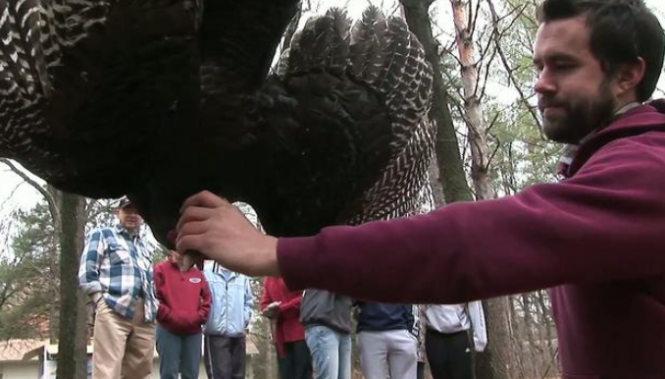Daniel Klein is on a mission. His goal is to teach people about "socially responsible and adventurous eating" through The Perennial Plate, his weekly video series focused on how food is raised and prepared in Minnesota. Here's a three-minute clip from the most recent episode, featuring growers in Milan, MN (population 326):
The Perennial Plate in Milan, MN - SG&T from Daniel Klein on Vimeo.
Here's a brief introduction to The Perennial Plate and a description of this week's video written by Daniel Klein himself:
Part of what I hope to do with my new series, The Perennial Plate, is to look at places in Minnesota and highlight what the locals are doing with food. My first video in this style is about Milan, Minnesota.
I went out to Milan looking for a story about growing vegetables during the middle of the winter. It's no easy task - especially in Minnesota - and it usually requires as much gas or propane to create tomatoes in the cold as it would to take a trip to California AND Florida. This time of year, although we're all excited about our salad greens, the only things coming up are perennials. But as I searched through the web (Googling every combination of Minnesota + greenhouse + sustainable) I found Chuck and Carol from Garden Goddess Enterprises running a full-fledged greenhouse in the middle of a Minnesota winter.
I called Chuck to learn about their work and within three minutes he had mentioned his post-apocalyptic food novel, the physics of ground heating, and that if I came out to Milan, there would be a meal of locally grown food for dinner. I started planning my trip.
Milan, Minnesota has a population of 326. It's about three and half hours west of the cities, and the town doesn't have much more than a bank and a restaurant. Chuck Waibel and Carol Ford live in a house like most of the others in town. At a glance everything about their house seems to fit in with the other 1950-style two-floor bungalows on the street. But something on the south facing side of their garage is different: The steep diagonal glass face.
This reconstructed garage is where Garden Goddess Enterprises exists. Chuck and Carol's operation has the opposite schedule of your average farmer. The winter is the busiest time for their CSA (community supported agriculture/farmshare) program. Every week they grow, cut, clean, and distribute salad greens from their greenhouse CSA to a group mainly made up of University professors. Root vegetables (from their cellar) and eggs also find a place in the boxes. In the summer, Chuck and Carol take time off from their CSA - to grow vegetables for themselves.
Their system is pretty simple. The sun-warmed air is pumped into the ground from the highest point in the building, so the heat from one sunny day can keep the greenhouse warm for several. If the temperature gets extreme Chuck and Carol use propane heaters, but it rarely comes to that. Believe it or not, Chuck claims that his heating bill is less than $100 dollars per year.
Chuck and Carol are an inspiring pair, but they're not the only ones that way in Milan. The mayor of the town (also a bed and breakfast proprietor) uses hand-harvested cat tail flour in her pancakes. The egg suppliers for the CSA are a pair of sisters (nuns too) who welcomed us with open arms ("practicing radical hospitality", they said) and provided homemade sauerkraut and concord grape syrup for my last harvest dinner. Milan may be in the middle of nowhere, but it has a community of free spirits and fine farmers.
We're really excited to partner with Daniel and The Perennial Plate and to show this video excerpt. If you enjoy the clip, please visit The Perennial Plate website to watch the complete video and consider supporting the project.

Lee Zukor is the founder of Simple, Good, and Tasty. Email him at lee@simplegoodandtasty.com.




